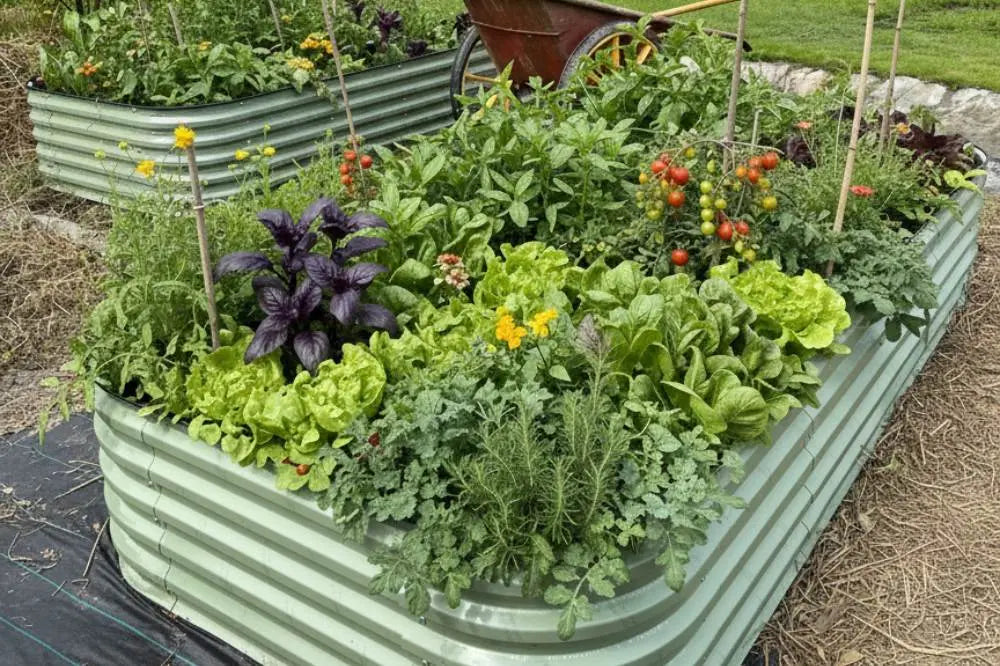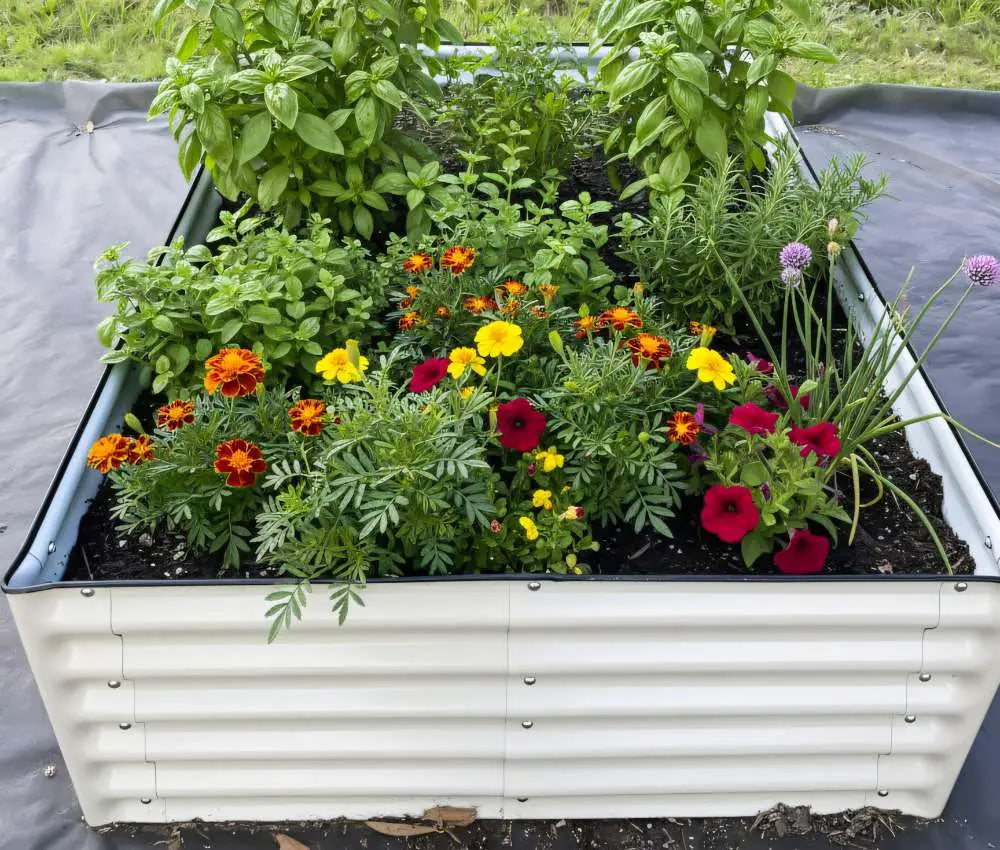Best Soil for Raised Garden Beds
Perhaps you've often wondered which one is the best soil for raised garden beds. When the plants are sick or growing slowly, the first thing we think about is whether the soil is nutrient-poor. With so many soil choices out there, it can take a while to figure out the best soil for raised beds. This article will break down the five best raised garden bed soil choices for you.
Five Types of Best Soil for Raised Garden Beds

1. Topsoil
Topsoil is mainly composed of humus, silt, sub-sand, clay, etc. It has good looseness, porosity, and permeability and is rich in organic matter and microorganisms.
What Is Topsoil Used For
- Lawn: Often used as a mulch or base layer for lawns, topsoil promotes the germination and growth of grass seed.
- Filler: Topsoil is often used as a fill material, especially when it is needed to fill low-lying areas or to provide a foundation for new planting areas.
- Garden Bed Base Layer: Topsoil can be used as a base layer of fill material for raised garden beds to help minimize weed growth. That is, a layer of topsoil can usually be placed before starting to fill the garden bed normally.
- Soil amendments: Topsoil is sometimes mixed with other soils to improve the structure and fertility of existing soils, especially before planting new plants.
- Gardening: topsoil can be used as a base soil in the landscape for planting flowers, shrubs and trees.

2. Garden soil
Garden soil is a relatively common soil in our gardens. Garden soil is natural, unimproved soil. This soil is rich in organic matter and nutrients, such as nitrogen, phosphorus and potassium, which can meet the nutritional needs of vegetable growth. It also has good drainage.
How to Get Rid of Ants in the Garden Soil
There are many ways to remove ants from garden soil. If we don't want to destroy the organic matter of the soil, we can prioritize the natural and harmless way to remove ants:
- Watering: Ants don't like moist environments, so regular watering to keep the soil moist can reduce the number of ants.
- Cinnamon powder: Spraying acidic substances such as lemon juice and vinegar can interfere with the odor-tracking function of ants.
- Diatomaceous earth: Food-grade diatomaceous earth powder can destroy the bodies of ants, causing them to dehydrate and die.
- Mint: Mint is an all-purpose little helper. You can plant a few mints in your garden beds to repel localized ants.
3. Potting soil
Potting soil is more commonly used for potted plants. It may or may not contain natural soil. Generally, potting soil contains natural soil, compost, organic matter (peat moss), and additives (vermiculite) to improve the drainage and permeability of the soil.
4. Potting mix
Potting mix is a soil that does not contain natural soil. It usually contains peat moss, bark, perlite, vermiculite, and other lightweight materials, some with slow-release fertilizers and wetting agents, and the soil has an overall fluffy texture.

5. Raised bed soil
Raised bed soil is a type of soil specially formulated for raised garden beds. Raised garden bed soil is one of the most expensive of all soils because it is specially formulated and treated to be rich in organic matter and nutrients such as humus, compost, nitrogen, phosphorus and potassium.
It also contains components that contribute to good drainage and aeration. Most specifically, it is treated to be resistant and stable, which reduces the risk of weed seeds and plant diseases.
Best Garden Soil for Raised Beds
Topsoil vs. garden soil
Compared to topsoil, garden soil has a looser structure, better aeration, better water and fertilizer retention, and is better suited for raised garden beds.
Topsoil and garden soil differ in their use, with topsoil being used more for soil remediation and foundation filling, while garden soil is an optimized soil mixture specifically for planting and gardening.

Garden soil vs. potting soil
Garden soil, made of natural soil and organic matter, works perfectly for large gardens and garden beds. In contrast, potting soil, a mixture designed for potting and container gardening, focuses more on drainage and aeration, making it ideal for indoor and container plants. You can often mix these two soils to enhance drainage and aeration with the benefits of potting soil.
Potting soil vs. potting mix
The difference between potting soil and potting mix is that potting soil is heavier than potting mix and contains microorganisms or weed seeds.
Potting mix is lighter in texture, does not contain natural soil and is usually sterile, which helps to reduce the risk of pests and weeds. Therefore potting mix is the raised garden bed soil of choice for most gardeners.
In terms of usage scenarios, potting soil is more suitable for general gardening activities and more robust plants, whereas potting mix is often used for seedlings and small plants.

FAQs
How Many Bags of Soil Do I Need for a 4x8 Raised Bed?
It takes 45.28 cubic feet of soil to fill a 17-inch-high 4x8 raised bed. This is calculated as length x width x depth, referring to how much soil to fill a 2x8 raised bed. Typically, a bag of common soil is about 1 cubic foot. Therefore, it would take approximately 45.28 packets of soil to fill the raised bed.
However, to create a sustainably raised garden bed, we do not need to fill the entire bed with soil, and we prefer to use the hugelkultur filling method. Using the hugelkultur method, which takes up about 20% to 30% of the total volume of the garden bed, the soil that may be needed is about 70% to 80% of the total volume of the bed, so with this scientific filling of the soil, we only need about 30-35 packets of soil to fill a 4x8 raised bed.


